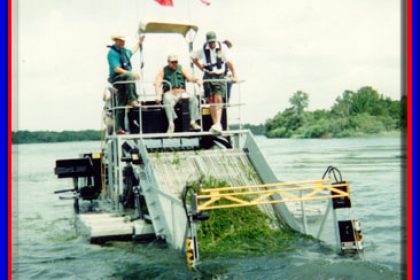
Most fishermen just call it “grass.” Others refer to it as “milfoil” (although that is just one species of many). Scientific types called it “aquatic vegetation,” while most dock owners refer to it as “weeds” (or other names we can’t publish here).
Whatever you call it, the submergent (underwater) aquatic vegetation growing on area lakes has been the subject of never-ending controversy since it first appeared in the late 1970’s.
Fisheries biologists and fishermen love it. They insist it provides greatly enhanced habitat for fish and is one of several factors that has led to Chickamauga Lake, a reservoir part of the Tennessee Valley Authority, being named one of the best bass fishing lakes in the nation. Meanwhile lakeshore land and dock owners despise it. Many say they are forced to pay thousands of dollars to private companies to keep their docks clear of vegetation, otherwise they would be useless.
Sen. Bell has established a group called the “Aquatic Spraying Study Committee,” a sub-committee of the Energy, Agriculture and Natural Resources Committee. Bell says his goal is to draft legislation for the upcoming session to better manage the aquatic spraying.
